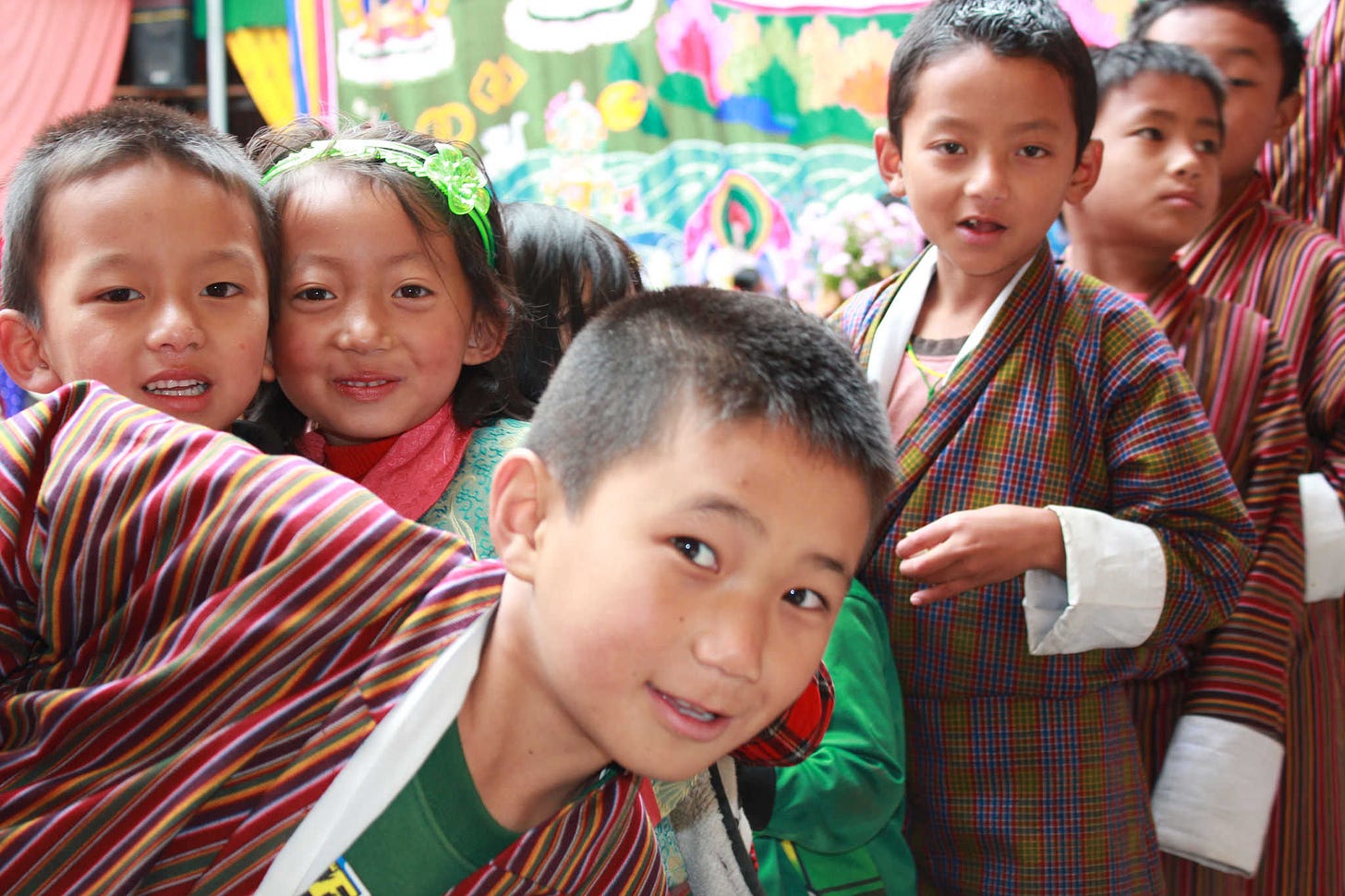Can a Prosperous Society Promote Well-being of its Citizens?

This decidedly is technologically the most advanced generation ever on this planet in many ways. Science, material science at least, has reached amazing peaks. Ordinary men and women now can do what many powerful kings could never dream of.
Despite all this progress, however, have we been able to achieve a joyous life?
Can a Prosperous Society Promote Well-being of its Citizens? #GNH #GDP Click To Tweet
We, as comity of nations have associated riches with well-being. But is money the sine qua non of happiness and well-being? Despite all the money and technological prowess, today Americans are spending more or as much on medicines as they are spending on food! That is not well-being by any measure. That is barely keeping yourself moving to eat more and consume more of the planet’s resources!
This is because we haven’t looked at well-being with clarity. Instead we have used our intellect – a tool of the mind which dissects whatever it comes across – to understand well-being. And dissect it did. It broke down Human Well-being to GDP and a country’s economic growth. Well, that brought homes, vehicles, products and huge consumption. But none of those brought around much joy.
Recently, everyone came to know of an interesting thing – that Bhutan, a small kingdom in Himalayas doesn’t measure its country’s success using GDP or GNP but GHP – The Gross National Happiness!
For example, in 2015 91.2% of Bhutanese were either narrowly, extensively or deeply happy. Of these as many as 43.4% were extensively or deeply happy!
And this is in a country which hardly has any serious number of cars or homes comparable to any Western country.
Meanwhile, some attempts are being made in the US to evaluate societies by an indes of well-being. Princeton economist Angus Deaton and Arthur Stone (professor of psychiatry and behavioral science at Stony Brook University) have been developing a Well-Being index along with some of their colleagues.
https://soundcloud.com/whyy-public-media/a-healthy-economy-based-on-a
Now, Gallup Healthways have a Well-being Index that can provide some useful insights. This index developed from the work of Nobel laureate Daniel Kahneman and University of Illinois psychology professor Ed Diener. Unfortunately, this index uses components that merely speak to the material aspects of things:
Overall Life Evaluation
Daily Affect (positive and negative experiences and emotions)
Basic Access (including access to food, shelter, and healthcare)
Safety (access to a good place to live, with low fear of crime)
Physical Health (including disease burden and short-term illnesses)
Economics (perception of standard of living)
Work (satisfaction and a quality workplace)
If you take Bhutan for example, and measure it on these components versus say the most unhappy US state, you would find it to be worse. Yet, people are happier! What gives?!
To further do a deeper dive in to the entire topic of well-being and understand what is it that makes a small Himalayan Buddhist Kingdom of Bhutan with such a huge population of monks who live in the most basic way, happier than people with the best of modern comforts, one needs to listen to this video. Here, a mystic and a Spiritual leader Sadhguru talks to Annette Dixon the World Bank Vice President for the South Asia Region. He discusses ways and means to bring wellbeing to the world and touches upon the issues of poverty, population and education in that context. He also discusses what leadership can do in the world of today and how we can all raise the human consciousness. Raising the human consciousness if the key that the Western world has been missing!! Something that Bhutan had laid its hands on and kept with itself for so long!
A version of this article was first published on Mar 25, 2013
Featured Image: Flickr





